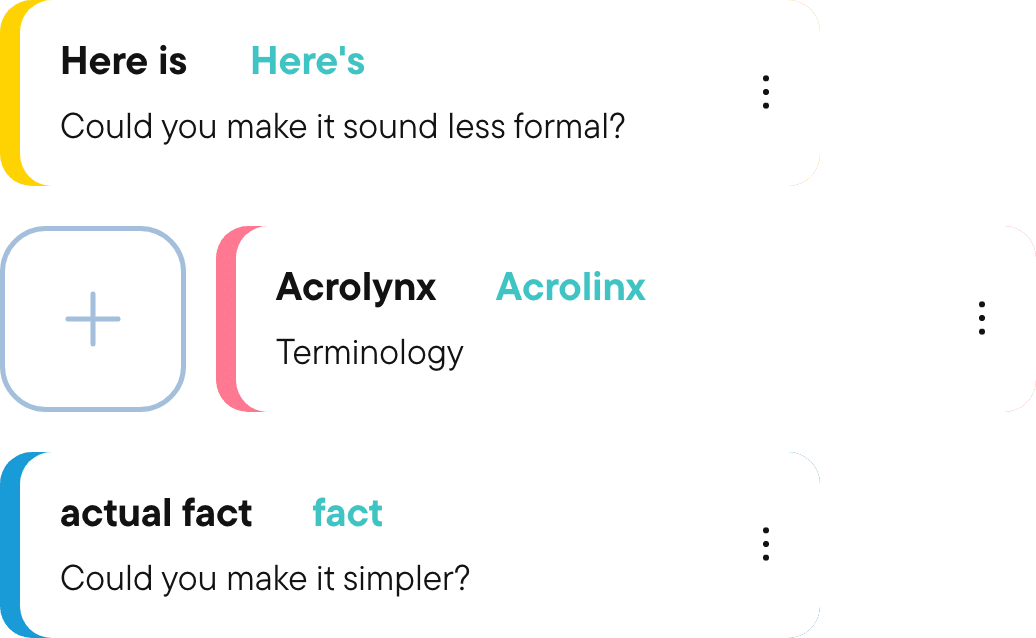The importance of inclusive language

Explore the hub
Why inclusive language matters
Inclusive language signals to historically excluded people and communities that they’re safe to be themselves, that we’re working to create greater equity, and supporting them to flourish. It symbolizes acceptance, allyship, and a commitment to seeing human differences through a lens of collaboration and a catalyst for growth — not as a basis for conflict.And in today's global climate, the importance of inclusive language has never been more relevant.
When it comes to inclusivity in the workplace, 83% of younger generations entering the workforce say they want to work for a company that’s committed to diversity and inclusion. And according to a recent Randstad survey, that generation already makes up 37% of the workforce.
Many organizations say they see inclusive language as another helpful tool to respond to societal shifts, and deliver better business outcomes while doing so. It also contributes to belonging, which improves employee wellbeing and helps your business build genuine relationships with a broader target audience.
As far as the benefits go, inclusive language amplifies your message and relates it to a wider audience. It also signals to people and communities who have been historically marginalized that they’re safe to be themselves at work, that they belong, and that you’re committed to helping them flourish. There’s a survey in the U.S. called The National Survey on LGBTQ Youth Mental Health (of the Trevor Project). In 2020, it reported that 25% of young people used neutral pronouns or a combination of pronouns to refer to themselves. Another study by the National Institute of Mental Health found that trans individuals who could use their name of choice — instead of the name they were given at birth — reported less depression and thoughts of suicide (tends to be higher in the trans community).
Stats like these might not be collected in the workplace, but they’re still very relevant in a workplace context. Inclusive language promotes wellbeing, encourages better knowledge transfer and decision making, and helps build better relationships with clients and prospects from different backgrounds. If your enterprise content isn’t inclusive, you miss attracting the right talent to help your business succeed. Content that’s outdated, or unintentionally written in a way that excludes people with certain identities, also creates a poor customer experience. At worst, it opens your business to communication risks arising from discriminatory language.
Ready for content success?
See how our AI capabilities help you create and maintain high-quality content in our demo.

